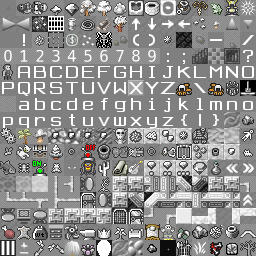

Make the chosen cell the current cell and mark it visited.Pick a random neighboring cell that has not yet been visited.If any neighboring cell has not been visited.Pick a starting cell and mark it visited.Set all cell walls to solid and mark each cell unvisited.The recursive backtracker algorithm works like this: Terms, it produces a spanning tree, meaning there are no loops and only one Have to be grid-shaped, but for this demo we’ll stick to a standard square grid)Ĭell-by-cell, connecting each cell, but never crossing over. It works by exploring a grid (technically it works on a graph, which doesn’t Known as “depth-first search”, and is one of the easiest maze algorithms to Wikipedia: Maze Generation Algorithm Making mazesįor this part, we’ll use the “Recursive Backtracker” algorithm. You can read an overview of maze generation here: Maze generation is a well-explored area, and there are manyĪlgorithms you can use, depending on the type of maze you need. You can learn a lot about procgen and its applications at theįor this series, we’ll start by looking at one of the most popular applications If you don’t play the game - and the learning curve is tough - it can beįascinating and entertaining to read about. If you don’t know about Dwarf Fortress, I highly recommend checking it out. The world is generated - environmental and cultural history, weather, biology, Or spaceships, to the ultra-complex: like Dwarf Fortress, where everything in In practice, itĬan cover a wide range of applications, from simple: such as random mazes orĬharacter names, to more complex: dungeons (including keys, locks, bosses, etc.)

In game development, procedural generation (“procgen” for short) is a method ofĬreating game content via automated, rather than manual, means. You can watch a video version of this lesson here: While we’ll be using Godot 3.0 as our platform, much of the conceptsĪnd algorithms related to this subject are universal, and you can apply them to In this series, we’ll explore the applications of procedural generation to gameĭevelopment. Procedural Generation in Godot - Part 1: Mazes by Chris Bradfield Tue, Tags:


 0 kommentar(er)
0 kommentar(er)
